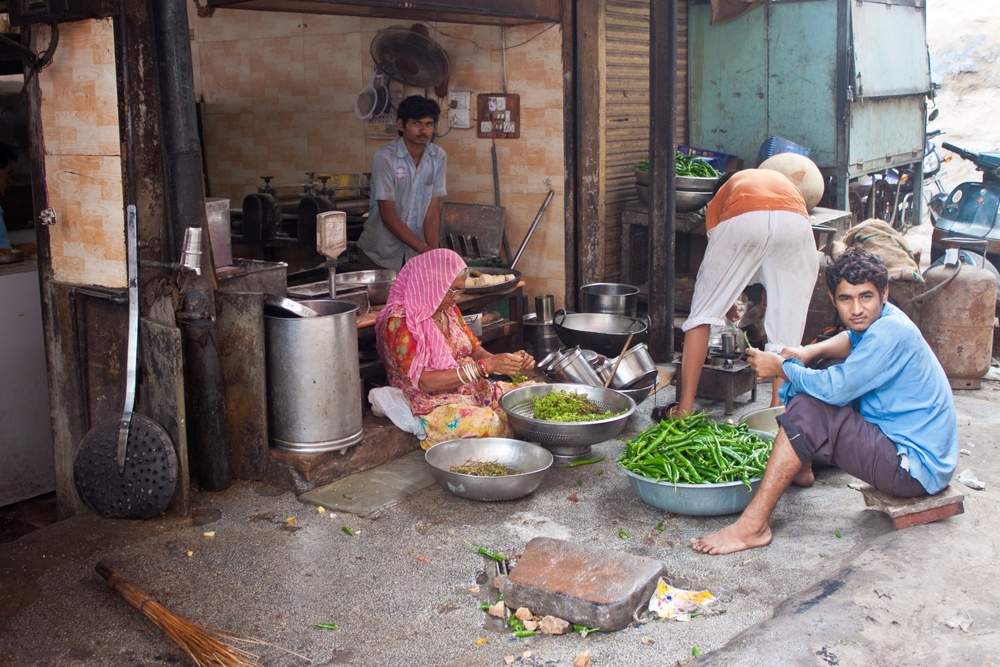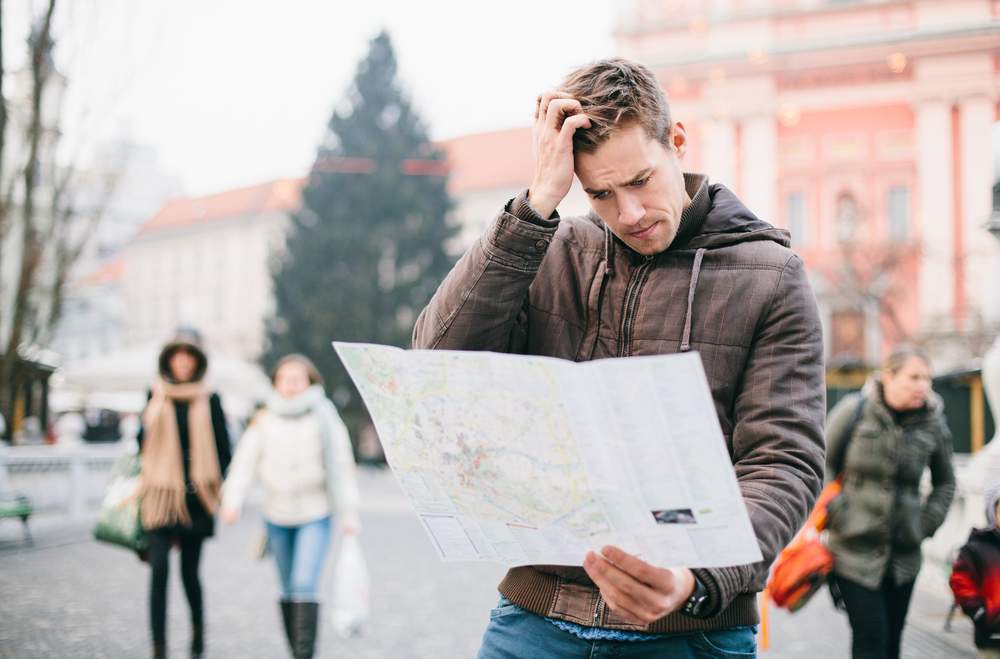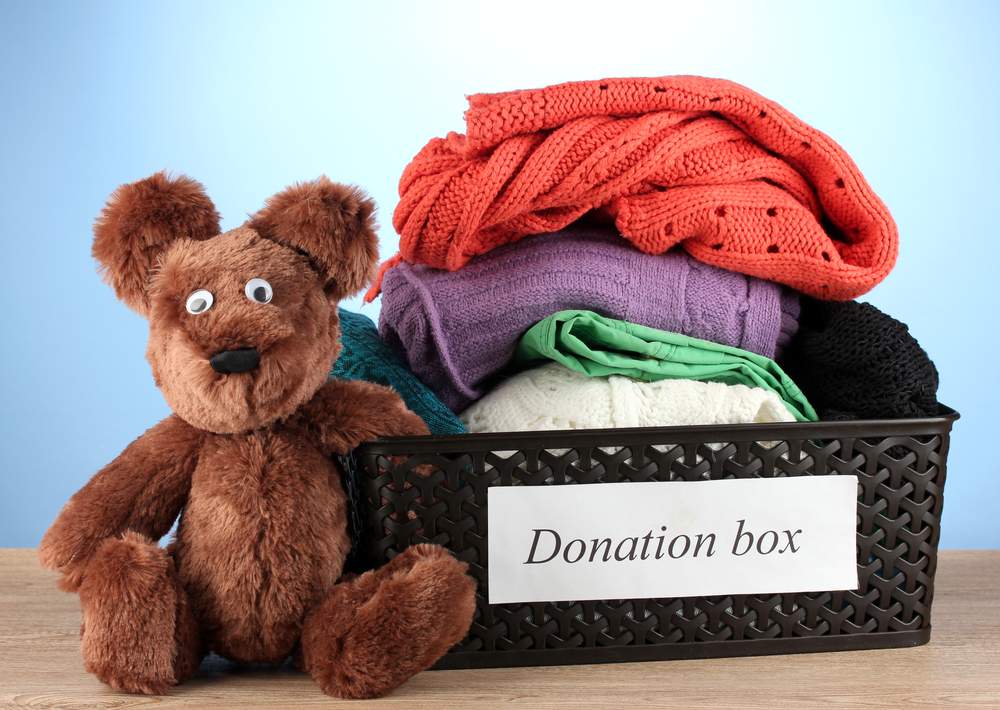A lot of people philosophize about the Peter Pan appeal of traveling—about regression to a childlike state of wonder and freedom. We can all see the appeal of traveling back to a time when everything was thrilling and new. But if a vacation is an escape to the magic of childhood, then living abroad is a visit to the pangs of adolescence. Welcome to the purgatory between young recklessness and adult competency! Unlike tourists, you are charged with errands and chores; unlike locals, you have no idea how to accomplish anything on your to-do list.
But once you get past the growing pains, and start learning how to take care of yourself in unfamiliar territory, you get to experience the magic of actually growing up. It’s a world of implicit triumphs and it’ll-be-funny-later humiliations. Unpack your bags and look forward to these life lessons:
How to get used to almost anything

There’s a reason that the first few days or weeks in a new country are called the honeymoon period—the country’s bad habits and blemishes have yet to make themselves obvious. They always do though. It can be anything from cultural acceptance of littering to limited dining options, but something will start to drive you crazy.
My first expat breakdown happened in Vietnam over hygiene. I was sick to death of lax standards in restaurants and markets, of dirty glasses and grubs clinging to my lettuce. Of course, there’s nothing I could do about the national pandemic of hair in my food—it was a case of patience or perish.
“Some things (like the rats) you don’t necessarily want to get overly familiar with, but it’s nice to discover how far you can stretch your comfort zone.”
I knew I had come full circle when an American friend came to visit and a rat ran across the floor of the restaurant where we were eating, causing her to recoil slightly. “Yeah, that happens,” I explained, shoveling noodles into my mouth. “Are you going to finish that?” She pushed her plate to the middle of the table.
Some things (like the rats) you don’t necessarily want to get overly familiar with, but it’s nice to discover how far you can stretch your comfort zone.
>> Check out the ten toilets you’ll meet on your travels – and how to deal with them
How to cook

Sure, you might pick up some tips about rolling factory-perfect spring rolls after a year in China, but every expat knows that the real delicacies when you live abroad are the dishes you miss most from home.
Living in New Zealand, which is about as far from Mexico as you can go, is where I learned how to actually make Mexican food. This was an act of necessity: the tortillas in stores were expensive and tasted like plastic, but I really wanted some tacos. As it turns out, tortillas are not at all difficult to make.
“It’s amazing how well you can manage without access to the packages you’re used to picking up at Safeway.”
I’ve also added from-scratch marshmallows, yogurt, and falafel to my repertoire, simply because these things are no longer cheap or convenient. It’s amazing how well you can manage without access to the packages you’re used to picking up at Safeway. And who knew that most food tastes better when it hasn’t been sitting in plastic for three months?
>> Learn to cook these 8 traditional dishes
The importance of sharing a meal

Most cultures have traditions surrounding meals, be it huge dinners at 9:30pm or a break for tea and biscuits in the afternoon. These are invariably social occasions, and you will invariably be included in them.
Even in cultures that don’t venerate mealtimes, you’ll find yourself invited for dinner—it’s a universal way to make friends. Meals become an opportunity for socializing and sharing, which is an old recipe for healthier eating habits and interpersonal bonding.
“I found that food is a fun and easy way to introduce your culture to an international crowd.”
When I started reciprocating meal invites, I found that food is a fun and easy way to introduce your culture to an international crowd. It’s also a great vehicle for sharing your experiences abroad with friends and family back home (they will be significantly more willing to eat your food than watch a half hour slideshow of your photos).
How to ask for help

It’s fine to ask for directions or recommendations when you’re on vacation—it’s expected even. But in our normal lives we tend to be pretty self-sufficient. We figure out how to do things like pump gas and eat artichokes by watching other people do it all our lives. Or, failing that, searching for instructional YouTube videos. Either way, we can go at it alone.
“As it happens, asking for help when you need it is an extremely useful habit.”
Not so much when you live abroad. No matter what, there will be moments when you need to swallow your pride and ask someone for help with a chore you wouldn’t have blinked at back home. Like buying shoes… When I lived in Vietnam, I had trouble finding shoes that would fit my giant, American feet. I looked in all the markets and department stores, but nothing fit.
It is humbling to ask someone how to buy shoes. It is even more humbling to require that person to personally take you to a shoe store and have them explain to the shop owner that you need clown-sized shoes. But once I wrangled a friend into helping me, the process only took about twenty minutes. As it happens, asking for help when you need it is an extremely useful habit.
To question the status quo

All those things you grew up thinking were written in stone? Forget about them. There is almost nothing you’ve learned that is incontestable—everything from table manners to hygiene is culturally relative.
I have been well trained to be polite in the American sense, and if there is one thing I knew never to do, it’s yelling indoors. But to get the attention of a waiter in a Vietnamese restaurant subtle hand signals or eye contact won’t cut it: it is imperative that you shout “Hey you!” as loud as you can. Did this make me feel like a jerk? Absolutely. But after a few weeks, I decided that it makes me feel like less of a jerk than sitting around waiting to be doted on like a princess. It’s all relative.
“Once you’ve had your expectations turned thoroughly upside down, you start to see that there are other, sometimes even better, ways to do things.”
Yelling at wait staff was never my cup of tea, but I’ve picked up other ideas from living abroad that have taught me to question the givens in my life. Once you’ve had your expectations turned thoroughly upside down, you start to see that there are other, sometimes even better, ways to do things.
How to have fun anywhere

Vacations are fun because they’re a break from real life—you don’t have to worry about work or cooking dinner or getting the car fixed. Instead, you get beaches and guilt-free Tuesday nights spent dancing with strangers. Just sit back and let the fun come to you.
Living as an expat is a little different. Sure, the beaches and jungles are still there… but you have to go to work on Wednesday morning and can’t exactly spend your afternoons gallivanting with backpackers. That said, it’s not like you’re not going to spend your tenure in a foreign country sitting on your couch and watching TV.
“It turns out that even your dull-as-dishwater hometown can be exciting when you try to see it that way.”
So you keep your eyes and ears out for activities in the evenings; you look for feasible weekend trips; you try pretty much anything because life abroad is supposed to be an adventure. And when you bring this habit home with you? It turns out that even your dull-as-dishwater hometown can be exciting when you try to see it that way.
>> Get tips for making the most of your time abroad
How to throw stuff away

Packing light becomes a way of life when airport scales stand between you and your next home. It’s unjustifiably inconvenient to cross continents with broken appliances and clothes you don’t wear, but sometimes it’s really hard to let go.
“It was all unnecessary and yet totally irreplaceable.”
Going through the junk I accumulated over a year in Vietnam just made me want to keep it more: that t-shirt presented to me by a stranger in a bar, that statuette I won on a game show, that hilarious red tinsel monstrosity I used as a Christmas tree. It was all unnecessary and yet totally irreplaceable.
I realized, after finally filling myriad garbage bags and presenting random tchotchokes to my friends under the guise of “something to remember me by,” that the stuff was never as important as the stories. Now I keep a notebook handy whenever I purge my closet, writing down the anecdotes that go with the items I’m about to throw away. It’s fun to flip through and makes me feel okay about getting rid of stuff I don’t use.
>> Read how traveling lightly can change your life
How to talk to strangers

Not only will you have to start anew with the people you meet abroad, but many of the cultural references you might normally share with strangers no longer have any bearing. Questions like ‘”where did you go to high school?” and cultural references understood by most of your native peers won’t serve as icebreakers.
Language barriers can make this even more difficult, but I found that approaching strangers with a smile and a little humility will get you far. Turns out this also works wonders on people who do speak your language.
“I found that approaching strangers with a smile and a little humility will get you far.”
Conversation topics usually have to go off-script, with a lot of improvising around the circumstances. But once you get the hang of talking to people you don’t share a background with, you might find that the things you learn from your differences are more interesting than finding out what you have in common.
>> Get tips for making friends on the road
How to handle peer pressure

You might be surprised at how much of yourself is still measured through comparison with your friends and neighbors. Think about where you think you stand politically. You might seem extremely liberal in the US, but you’d probably land somewhere else on the political spectrum in, say, Sweden.
I always thought I was a good environmentalist: always turning off lights when I left a room and recycling old newspapers. I discovered in Vietnam that I am only a good environmentalist when the people around me have similar concerns. After months of tossing once-used plastic water bottles in the gutter (where garbage gets picked up) and churning the AC all night long, I had to concede that I was hardly as earth-friendly as thought I was.
“By challenging your own position on anything and everything, you end up with a much stronger sense of what you actually believe”
By challenging your own position on anything and everything, you end up with a much stronger sense of what you actually believe as opposed to what you believed because everyone around you believed it, too. Sometimes it’s a painful revelation, but it does give you enough awareness as to suggest positive self-change. Or at least enough awareness to suggest you move back to a country with curbside recycling pick-up.
How to empathize

Living abroad puts you on the outside looking in. For most of us, it is a unique experience to be on the margins of society. And for most people living abroad, it’s a temporary situation. Still, it’s not always easy.
“It can’t help but make you appreciate life on the periphery.”
Living abroad can be frustrating and embarrassing, and finding hair in your food, going on fruitless outings to try and find tortillas or shoes in your size will make you wish for a time when things were straightforward and familiar. It can’t help but make you appreciate life on the periphery.
With a better understanding of the difficulties circumstance can cause in our lives, it is easier to empathize with those who, for whatever reason, find themselves marginalized. After all, the opportunity to look at life through someone else’s eyes is one of the reasons we travel in the first place.
Read more about the things you can learn from travel and how life is as an expat:











